For the Maya, honey has long been considered a sacred substance. Since antiquity, it has been used for medicinal purposes, in sacred rights, and more recently, as a sweetener.
The Yucatán Peninsula is known around the world for the quality of its honey, produced by the 17 bee species that live in the Peninsula. Among them is the Melipona Beecheii bee.
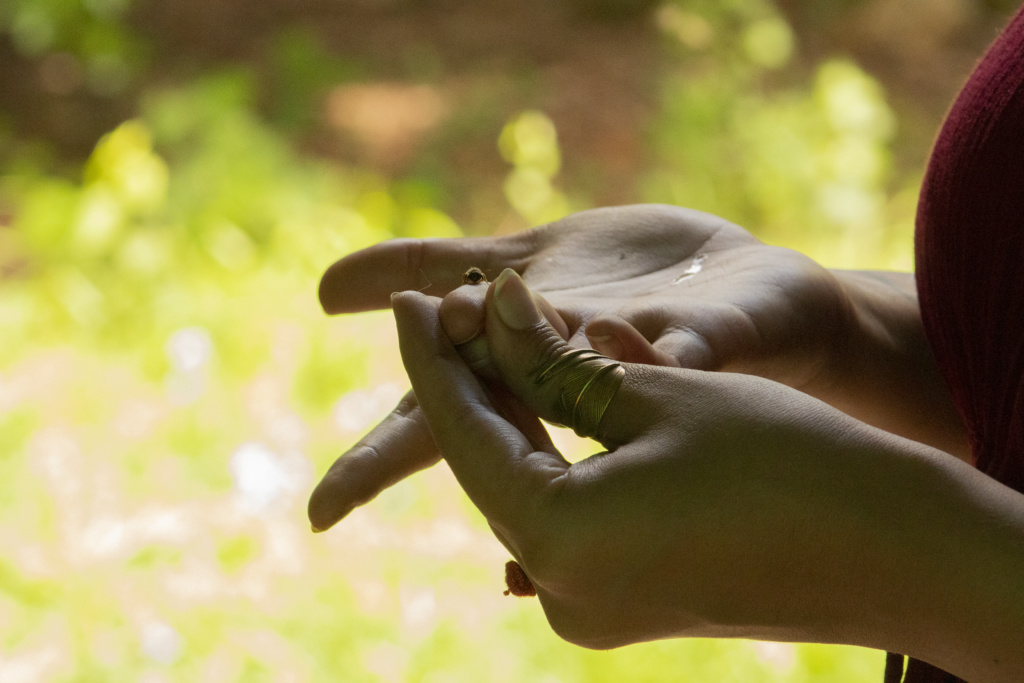
The honey of this species, dubbed “the sacred Mayan bee,” is notable for its therapeutic qualities. Also known as the stingless bee, the Melipona beecheii can be differentiated from more common species by its small size and furry-looking body.
Honey production is big in Yucatán, employing around 13,000 beekeepers who mostly work with melliferous bees, who are capable of producing up to 50 kilos of honey per year. In contrast, Beecheii bees produce only about one and a half kilos a year.
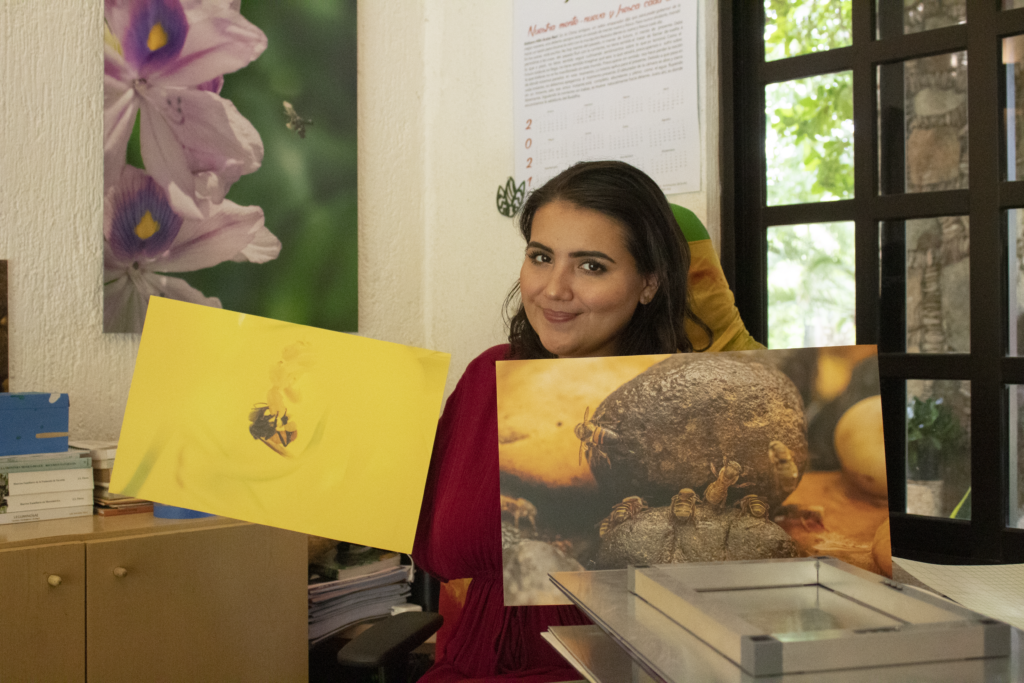
Diana Mendieta has dedicated herself to their conservation since 2014. After researching beekeeping practices in the state, she decided to open an apiary focused on the care of the melipona bee. Great care is afforded to the “meliponarium’s” bees and honey is harvested in a loving and responsible way. Through their care and attention to detail, they produce what the Mayans referred to as the “food of the sun.”
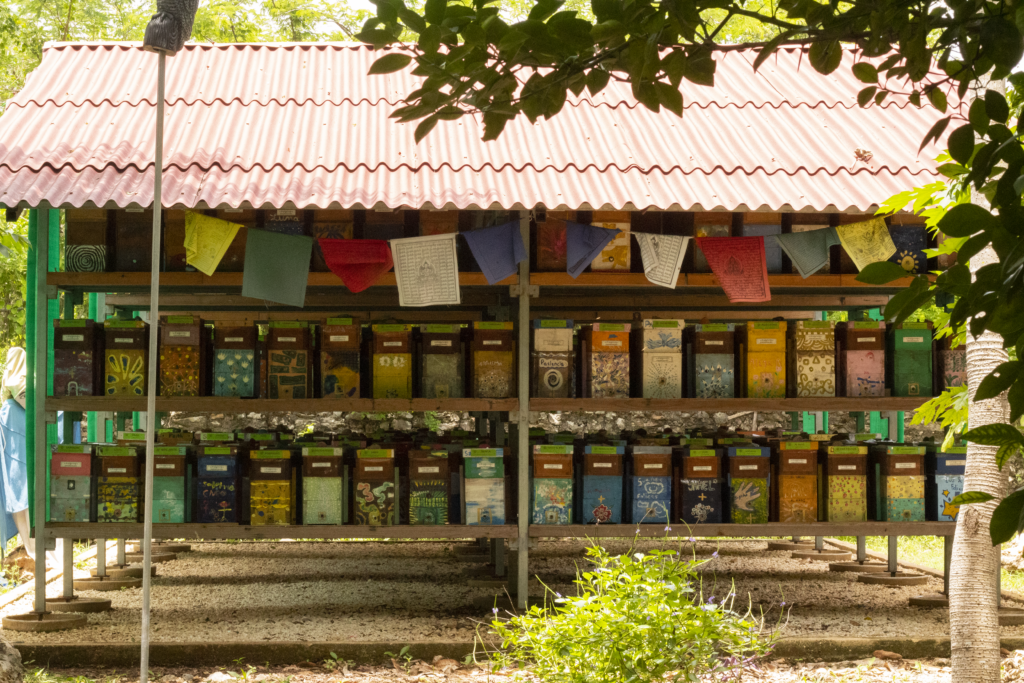
“We know the benefits that honey provides first hand,” says Diana, “and we want to bring them closer to everyone. We are here to preserve this ancient knowledge and share it with the rest of the world.”
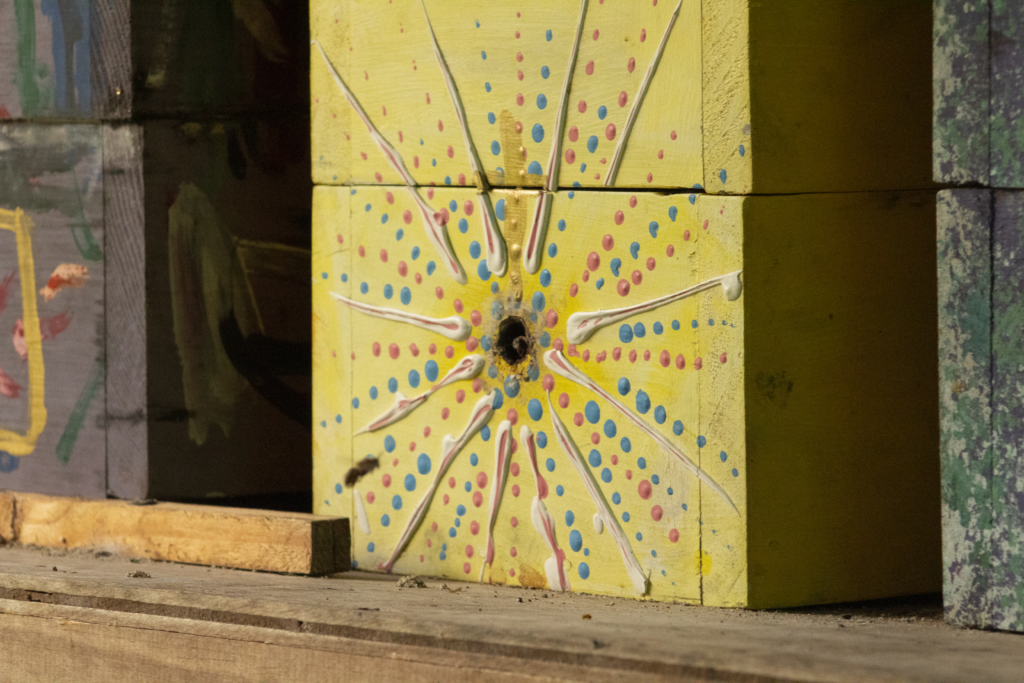
Diana’s apiary, Melipona Beecheii, operates from Cholul, in the outskirts of Mérida, and cares for more than 500 bee hives. The Beecheii bee is the most abundant in the meliponarium, but Diana has adopted different species that she cares for as well. Among them are the Trigona fulviventris bee, commonly known as the earth bee, the Euglossa bee, commonly known as the orchid bee, and the scaptotrigona pectoralis bee, known in Mayan as K’an’tsak.
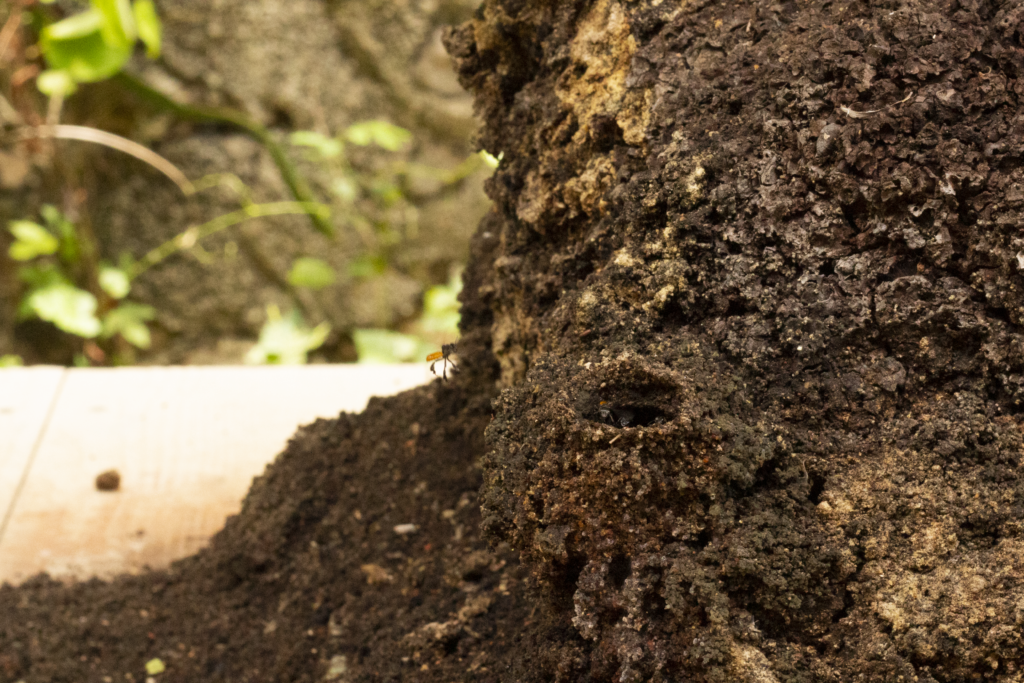
Isabella Giussani is one of Diana’s children, and she works with her mother as the brand’s photographer and communications director. Instead of focusing on quantity, their intention is to ensure the quality of each product and the wellness of their bees.
“The usual beekeeping practices do not look after the hive,” says Isa. “They are focused on mass production. For us, the most important thing is that the bees are healthy and happy when making their honey. It’s a product they share with us. We take the surplus, but the rest is theirs.”
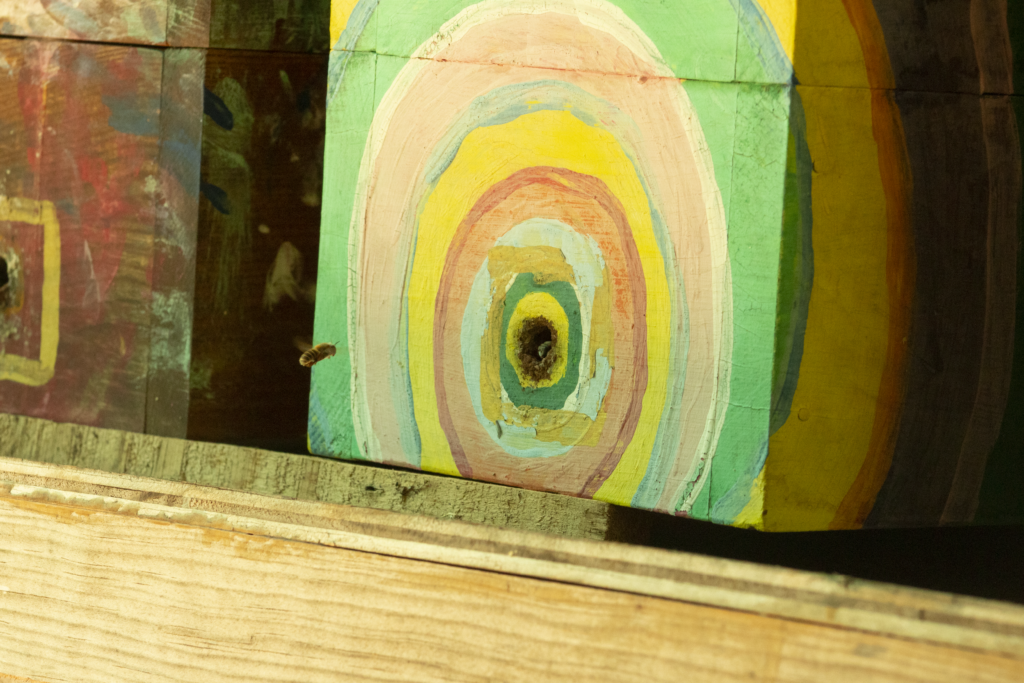
Melipona Beecheii sustains itself through the sales of medicinal products made from honey, pollen and wax. The extraction of the substances is done in a laboratory following pharmaceutical standards. This way, they ensure the purity and safety of the honey, as well as the wellness of the bees.
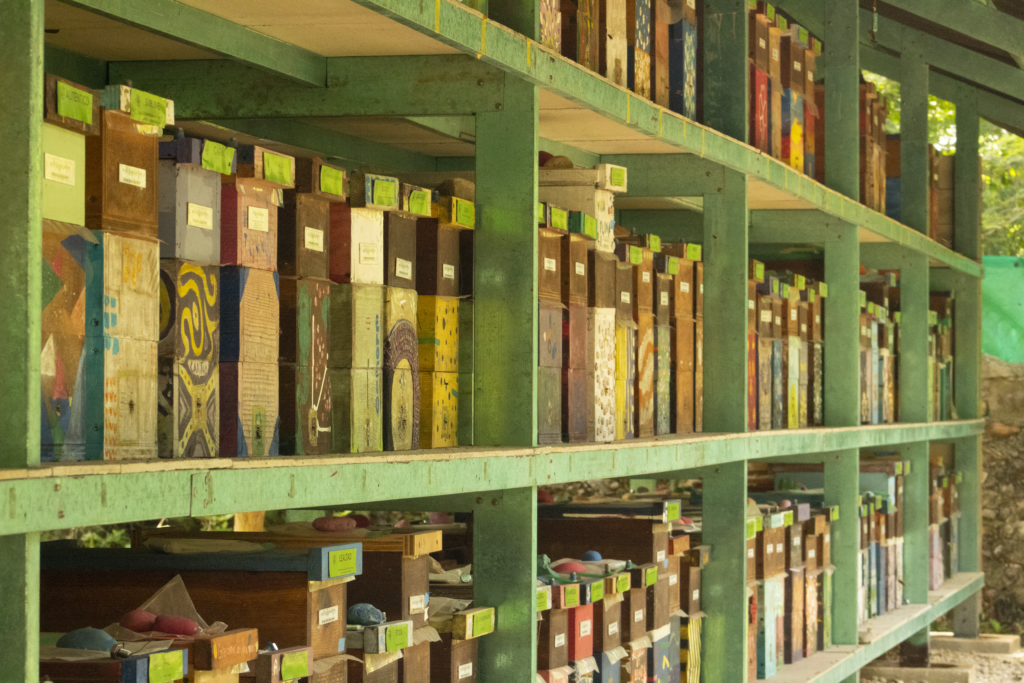
The Giussani Mendieta family lives on the Meliponario site. The garden of the house has plants of all kinds, including tobacco, basil and tamarind. A few meters from the garden’s entrance, a small water stream runs as a fountain for insects.
A stone path leads the way to the beehives. The garden is divided in three parts, with two large kiosks of shelves filled with apiaries, and a painting area in the middle.
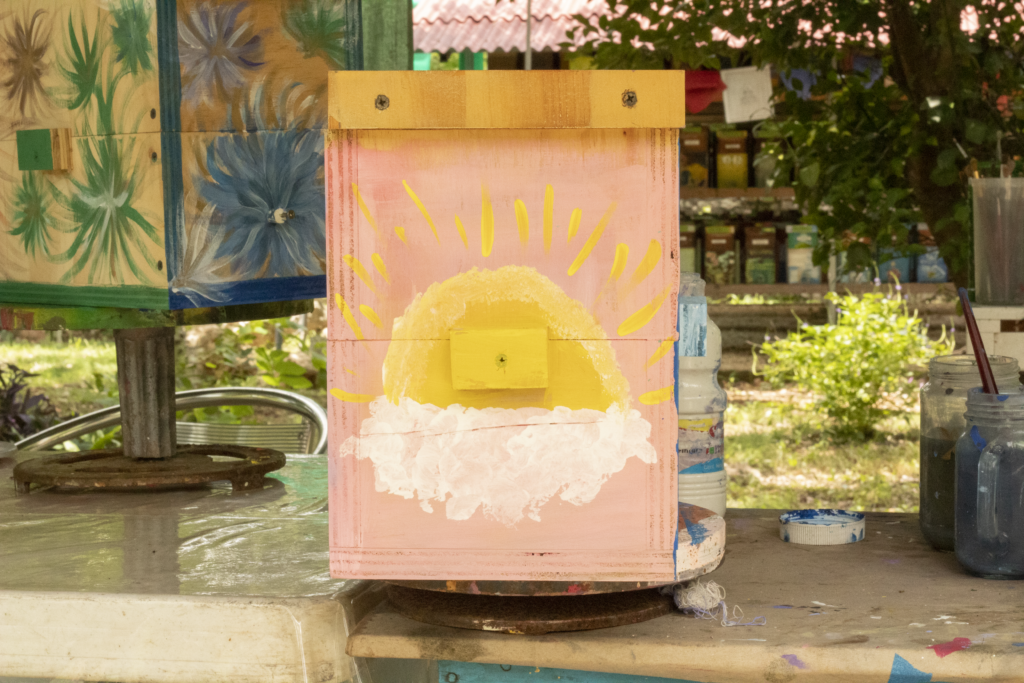
In the shelves are rows of wooden boxes painted by visitors. Each apiary is inscribed with an intention and a prayer that blesses the entrance and exit of the bees. The painting of the apiaries is offered as a meditative activity one can enjoy in exchange for a small donation.
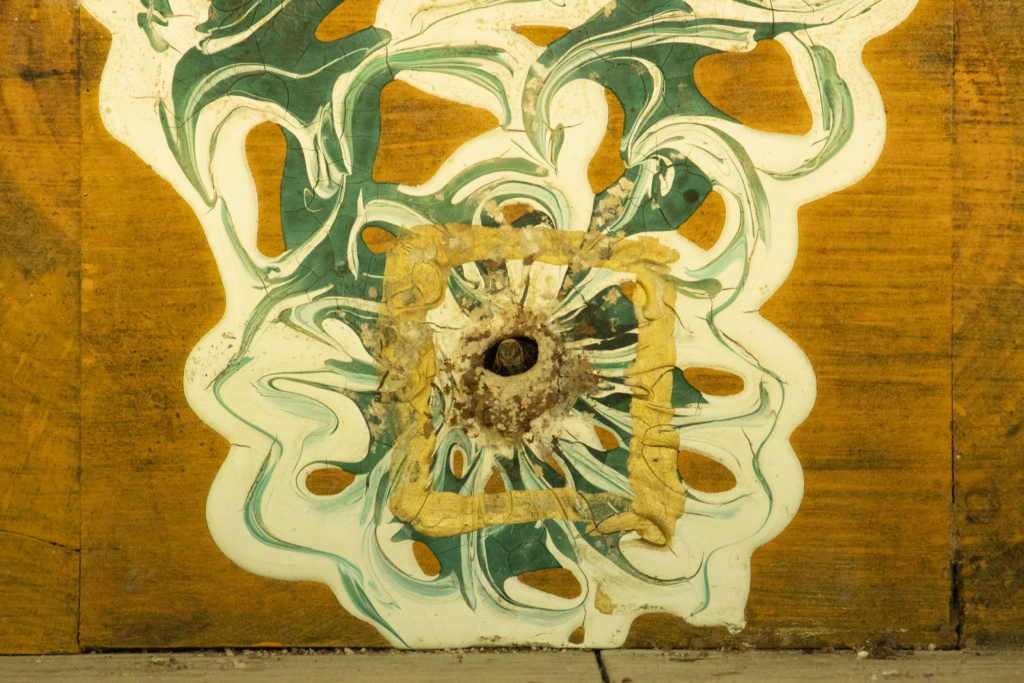
The garden is a contemplative space. Serene music is played to complement the vibration of the bees, and wind instruments ring from time to time. The ambiance is very conducive to mindfulness, an intention they carry to their social media, where they share meditations and reflections on nature.
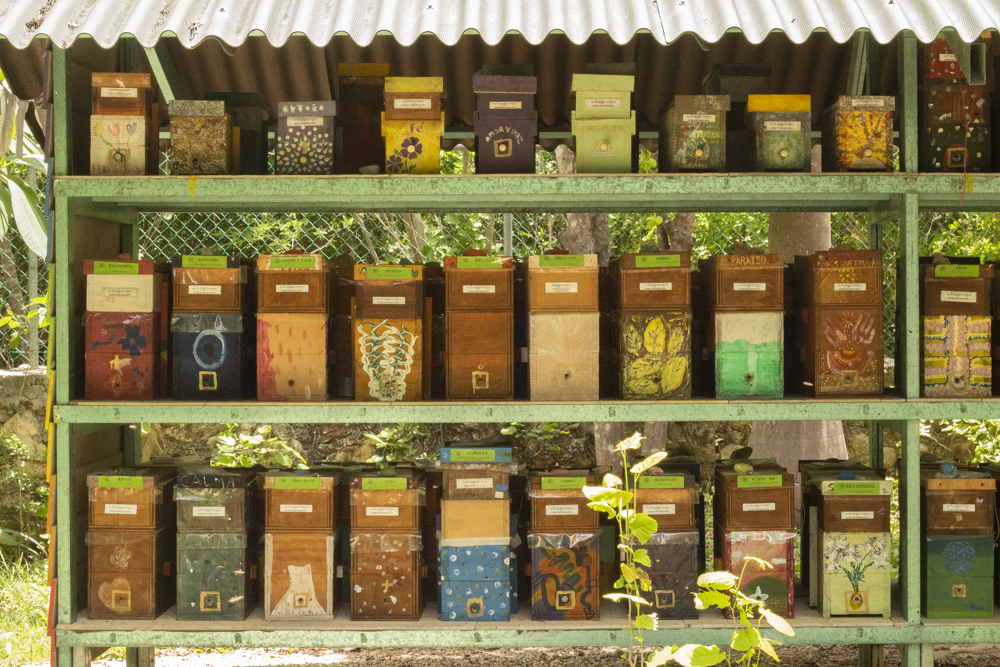
Isabella says that visitors often express a desire to contribute to the well-being of the bees. She thinks that the best way to help is through attention to what we consume and personal awareness.
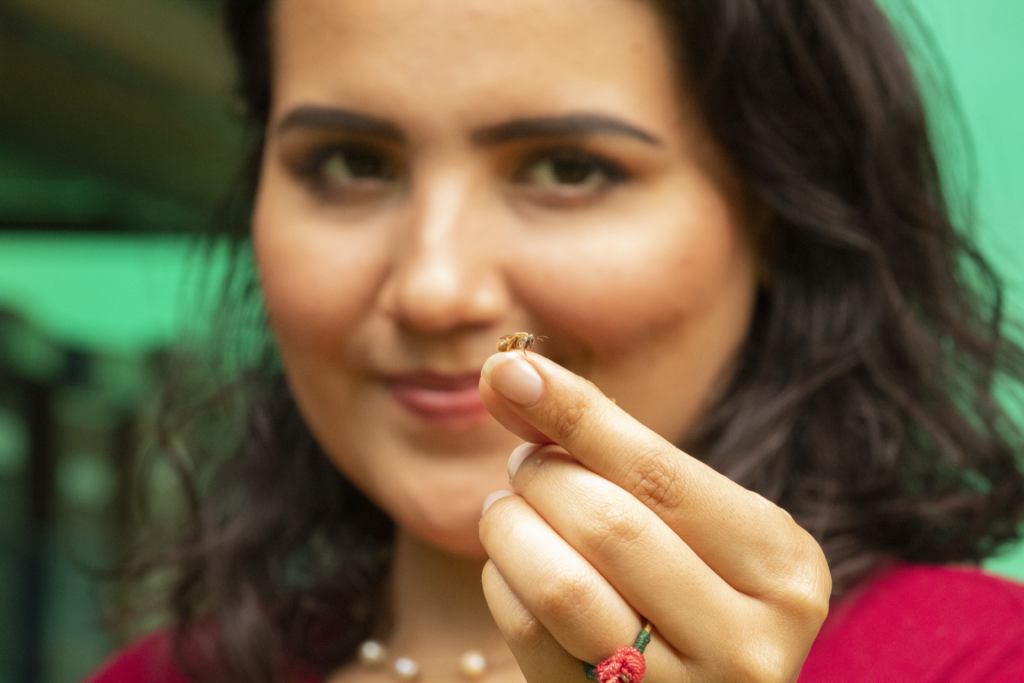
“Being present determines our human experience,” says Isa. “When we are aware that we are part of a whole we make different choices, better ones. What we eat affects the bees, as does how we behave in our everyday lives. If we want to support them, take care of their environment, we have to change the way we live, and that starts with consciousness.”
Learn more about Melipona Beecheii on their website, or on their social networks.









